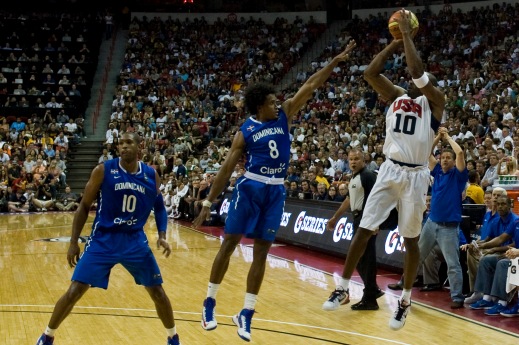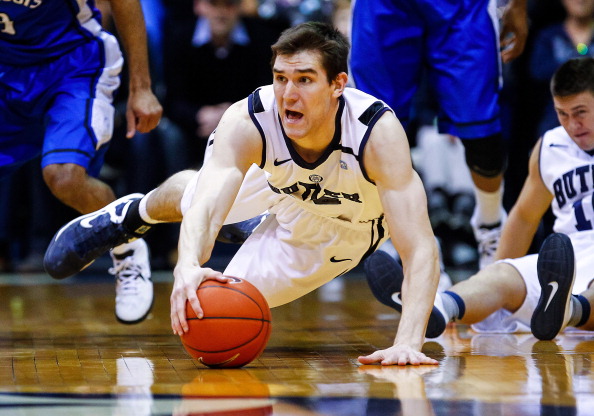
Hero Ball
I had known Alex for all of 15 hours before I decided that we’d be friends until the Earth split in two. In the fuzzy mid-day malaise that accompanies a Caribbean vacation in the dead of winter, I realized that I didn’t even know his last name as we sat in the jacuzzi on a cruise ship; an American and a Brit sharing an infinite amount of idiotic smiles at the outset of a much-needed vacation as the new decade dawned.
We were the same age, yet our lives were dramatically different, tethered together by the barest of threads — a joke here, a round of drinks there, a scheduled 6 p.m. workout each night — as we desperately tied them together, hour by hour, just searching for a connection to make a 10-day jaunt worthwhile. He worked for Siemens, boasting about the voice-activated electronics he helped devise, while I pulled out all the stops in making my 9-to-5 desk job seem like more than just a throwaway scene from The Office. Separated by three thousand miles and a lifetime of completely different experiences, the initial inquisition into a potential friendship with Alex and his two siblings felt incongruous, like that age-old Sesame Street song. One of these things was definitely not like the other.
Until we were exactly the same.
That realization didn’t come from an hours-long dive into the inner recesses psyches (which came much later in our trip), or even from a shared love of anything, from music to movies to what kind of clothes we wore (I marveled at Alex’s brand-new, spiked Louboutin shoes every night as I sheepishly hid my mud-tattered Vans slip-ons). That afternoon, in the midst of lazing away on the high seas, we simultaneously took the garbage collected from an afternoon of nothingness, jab-stepped, and executed the perfectly-imperfect trash-can fadeaway practiced by millions around the world in the wake of basketball’s global explosion, all while shouting the unmistakable name of the greatest NBA player of our childhood.
“Kobe!,” we both squealed at the apex of our hopelessly flawed jumpers as the refuse of two completely different people, joined together totally by circumstance, floated into the garbage can at the same time.
I looked at him with astonishment — I simply did not expect him to understand such a classically American ritual. Since I was a toddler, it was frowned upon if someone didn’t shout the name of the Lakers legend as they chucked their detritus into the nearest receptacle. Grade-school milk cartons, teenage fast-food wrappers and indiscriminate beer cans alike have all been given the dignity of falling through the sky as the name of an NBA legend reverberates through the surrounding airwaves. Looking back now, it almost makes you feel bad for the junk that was tossed before 1996.
Alex simply smiled and said, “I know that you should yell ‘Kobe’ when you’re going for precision and accuracy. Kobe is insane, mate.”

Kobe Bryant, USA Olympic Men’s Basketball player, shoots a jump shot against players from the Dominican Republic during the a pre-Olympic exhibition game on July 12, 2012, at the Thomas & Mack Center, Las Vegas, Nev. Team USA only has a couple more weeks of practice before the 2012 Summer Olympics begin in London, England. (U.S. Air Force photo by Airman 1st Class Daniel Hughes)
***
Kobe Bryant died on January 26, 2020, in a helicopter crash. He was 41. His 13-year-old daughter was with him. It was not supposed to happen like this. He was supposed to be the father figure for the young, talented athletes in the NBA. He was supposed to run a team. He was supposed to mentor the next generation of men’s and women’s basketball stars. He was supposed to grow old. He was supposed to be a living legend. He was supposed to be invincible.
To a certain group, he is invincible. His spirit will live permanently in those that were born and raised between generations, at the borderline of the Millennials and Generation Z. We saw the iconic purple and gold “8” on Sportscenter‘s Top 10 Plays while getting ready for school, but also heard the “ping” of our iPhones when No. 24 hoisted up back-to-back titles at the onset of the last decade and retired with a 60-piece in 2016.
Bryant taught us the Mamba Mentality — to not back down, to be relentless, to constantly seek that which we do not know. He showed us what an ultimate competitor should look like, no matter the discipline. Even for a stocky white kid that mustered all of four at-bats on his varsity baseball team, Bryant taught me how to chase what I want, and then continue the chase until I found something that I wasn’t looking for — which ended up being exactly what I needed.
Above all else, though, Bryant gave us, a lowly sub-generation just beginning to navigate its way through the murky waters that constitute our early life and times, something even greater than the Mamba Mentality — something above the titles, above the Most Valuable Player Award and even above the respect and adoration (in a strictly athletic sense) of a vast majority of Americans.
Bryant gave us a reason to connect.
His stature across the globe was mightier than the picture-perfect jumper that carried him to legendary status. He was more than just a hooper, more than just a state of mind, more than just a legend — he became the culture, as intertwined with the early 21st-century lexicon as anyone. He reached the kind of status that we all dream about when we’re filling out fifth-grade questionnaires: I want to be a princess. I want to be an astronaut. I want to be Kobe.
That culture spread far and wide, from China, where basketball is undoubtedly one of the most popular sports, to Slovenia, where a kid named Luka Doncic dominated the local circuit before becoming an international superstar before turning 20, to a small city three hours north of London.
***
Often, we don’t really know who our heroes are until they’re gone; until their passing reminds us of the smallest moments that make us feel something beyond the ordinary. Sometimes its an otherwise insignificant moment — a single name simultaneously shouted, the tacitly shared impact of a man, the foundation of a friendship — that paints a heroic picture.

